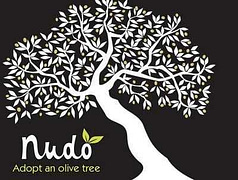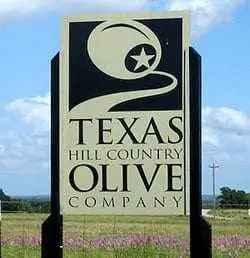By Cristabelle Tumola
Olive Oil Times Contributor | Reporting from New York
In the past few decades the concept of adoption has been stretched to include a person donating money for the adoptee to be cared for in its own environment, such as saving endangered animals, like pandas, or threatened environments, like rainforests. Recently, the adoption definition has once again been extended to include not only adopting a piece of nature and helping to preserve it, but also receiving what it produces. These adoptions include fruit trees, such as apple or peach, as well as olive trees.
 The concept of adopting a tree and receiving its goods has a strong connection to recent food movements, whether it’s eating healthier, more organic or local. Part of the idea behind the local food movement is that people want to feel a stronger connection to the food they eat, to the person growing the food and to the place they live. Of course, for the majority of the country olive oil is not a local product, but by adopting an olive tree, it can provide a similar comfort.
The concept of adopting a tree and receiving its goods has a strong connection to recent food movements, whether it’s eating healthier, more organic or local. Part of the idea behind the local food movement is that people want to feel a stronger connection to the food they eat, to the person growing the food and to the place they live. Of course, for the majority of the country olive oil is not a local product, but by adopting an olive tree, it can provide a similar comfort.
Among the most notable of the adopt an olive tree programs is Nudo, whose groves are mostly located in Italy’s central-eastern region of Le Marche. Started in 2005, the program now has adoptees throughout the world, in places such as the U.S., Australia and Japan. For a yearly fee, an adopter receives three different packages throughout the year: two olive oil shipments and one with a
personalized adoption certificate and booklet about the tree. In addition, Nudo
gives each adopter the chance to pick a tree from one of their six groves.
 Also in Italy, is Abruzzo Passion, named for founder Albina Fabiani’s love for her homeland and the simplicity of life in Abruzzo. Founded in 2006, Fabiani offers walking tours to travelers, in addition to the adoption program. Adopters get to choose from one of two olive groves with a variety of trees. Each person receives an adoption certificate and tree information, a spring package with stone crushed extra virgin olive oil and an autumn package of olive oil flavored with Abruzzo herbs as well as a personalized cookbook.
Also in Italy, is Abruzzo Passion, named for founder Albina Fabiani’s love for her homeland and the simplicity of life in Abruzzo. Founded in 2006, Fabiani offers walking tours to travelers, in addition to the adoption program. Adopters get to choose from one of two olive groves with a variety of trees. Each person receives an adoption certificate and tree information, a spring package with stone crushed extra virgin olive oil and an autumn package of olive oil flavored with Abruzzo herbs as well as a personalized cookbook.
Across the European continent to the west, in Spain, is Finca Vall den Rubi. Its olive grove, consisting of 700 trees, and a Spanish cottage, where guests can stay, are located in the Baix Ebre area in southern Catalonia. As with the programs in Italy, Finca Vall den Rubi gives each adopter a certificate and
photo of the tree along with 2 liters of extra virgin olive as well as a voucher for a
discounted stay at the cottage.
 Adopting an olive tree isn’t limited to the eastern side of the Atlantic. America also has some its own programs. One of those places is in an area that few think of when they picture an olive grove — Texas. Located in the Central Texas Hill Country near the town of Dripping Springs, Texas Hill Country Olive Company, a family-run organic olive farm has five different types of olive trees that can be adopted. It not only gives its adopters oil from their trees, but also their own personalized label on each bottle.
Adopting an olive tree isn’t limited to the eastern side of the Atlantic. America also has some its own programs. One of those places is in an area that few think of when they picture an olive grove — Texas. Located in the Central Texas Hill Country near the town of Dripping Springs, Texas Hill Country Olive Company, a family-run organic olive farm has five different types of olive trees that can be adopted. It not only gives its adopters oil from their trees, but also their own personalized label on each bottle.
A more familiar location for U.S. produced olive oil is California. Despite the recent olive oil craze on the West Coast, only one name comes up when searching for California olive tree adoption programs—Olivas de Oro Olive Company. Founded by the husband and wife team of Frank and Marti Menacho in 1999, their program is just a few months old. Along with three shipments of extra virgin olive oil, an adoption certificate and a photo of the tree, each member also gets a Certified California Organic Farmers’ certificate.
Even though each of these programs are in different locations, with varying benefits, prices and trees, they all have something in common when it comes to the reasons behind and the value of their adoption programs. For the European programs, it comes from history, tradition and the drive to help out small artisan olive farmers. In order to ensure the quality of olive oil, Nudo promotes small-scale farmers, many of who, without a program like Nudo’s would be forced to sell their olive oil at low prices and soon become a thing of the past. “The children of the old farmers don’t want to spend time and energy farming. So the traditional olive plantations are in serious danger and could be neglected,” says Annet Timmer and Trees Turpijn, the owners of Finca Vall Den Rubi.
At Texas Hill Country Olive Company, it’s also about tradition, but about establishing a new one for future generations. “The owners, Rick Mensik and John Gambini wanted to build something that would last, something that they believed in, so they decided on an olive orchard,” says Nicole Swanson, Mensik’s daughter and the one who is in charge of adoptions. “We also wanted a business where we know our customers and have relationships with them,” she adds. Marti Menacho of Olivas de Oro Olive Company has the same driving force behind her program: “Truly our motivation for doing this was to really involve people. We just didn’t want to be a nameless face of a shipment that arrives on your doorstep with no connection.”
Although these programs can range from around $90 to $150 per year, for the producers, and for their customers, however, the value can’t be measured in dollars and cents. “It is not about buying, it is about helping,” says Albina Fabiani. The quality also creates great value as Nudo’s Marketing Manager, Roelof J. le Roux, explains: “In the springtime, adoptive parents receive olive oil that was still ‘hanging on the tree’ just four months before. As legislation demands that Best Before dates only be applied upon bottling, most big olive oil brands in supermarkets sell oils that have been stored in tanks for one or two years or even more. This way supermarket customers never experience the real benefits of fresh, healthy, flavorful olive oil.”
Adopt an olive tree programs also offer customers a chance to increase their connection and value by giving them the opportunity to visit their trees. Nudo has had about 40 adopters come over to Italy last year to visit their tree. At Texas Hill, they’ve had several families bring their children and take pictures of them next to their trees, with an average of about one family per week coming to the farm to either visit their tree or choose one to adopt.
Whether over five years or a few months, each of these adopt an olive programs have seen a growth in new members, as well as more people renewing year after year. As more people desire to feel a stronger connection to what they are
eating and to ensure the quality of the food they are putting into their mouths,
adopt an olive tree programs are sure to keep growing.









